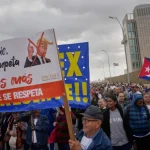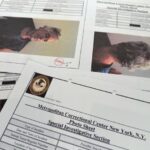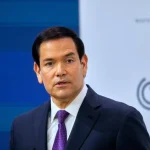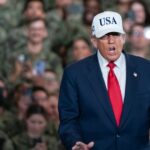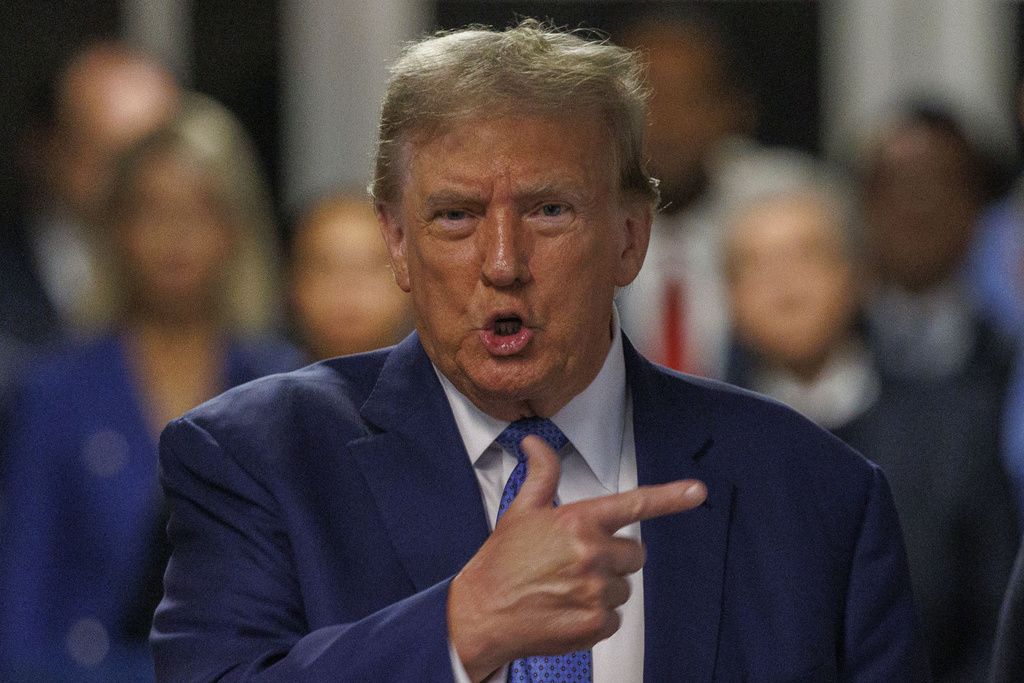
NEW YORK — It was a tumultuous day in court for Donald Trump‘s hush money trial, where a judge briefly cleared the courtroom after a heated exchange with a witness who had been called to help the former president’s case.
When Trump exited the courtroom on Monday, he praised the witness, Robert Costello, a former adviser to his ex-attorney and fixer Michael Cohen. Costello’s words were integral to the defense’s efforts to undercut Cohen’s claims about Trump’s alleged involvement in a hush money payment to porn star Stormy Daniels, for which Trump is now facing charges.

“You saw what happened to a highly respected lawyer today, Bob Costello. Wow. I’ve never seen anything like that,” Trump said. The former president also said presiding Judge Juan Merchan has a chance to gain back “respect” if he agrees to dismiss the charges before the jury deliberates on whether to convict or acquit Trump of the 34-count indictment.
“This case should be dropped by the judge,” Trump said, adding if the judge did that, Merchan could “gain the respect back.”
Trump, who is under a gag order that prevents him from commenting on witnesses, has denied wrongdoing and pleaded not guilty in the case.
Here are five key takeaways from the dramatic proceedings on Monday.
Prosecution rests its case against former president
After calling more than 20 witnesses and showing jurors more than 200 pieces of evidence, prosecutors with Manhattan District Attorney Alvin Bragg’s office finished presenting their side of the case against Trump late Monday afternoon.
Their final and most crucial witness was Cohen. After watching prosecutors hammer Cohen about his credibility and key parts of his story for three days during cross-examination, prosecutors’ last move was to elicit testimony from Cohen during a redirect questioning about calls he made to Trump, during which Cohen claims he spoke to Trump about Daniels.
One such call, which Cohen made to Trump’s bodyguard Keith Schiller on the night of Oct. 24, 2016, has been a point of contention throughout the trial.
Defense attorneys highlighted how the call was a mere 90 seconds long and had been preceded by calls and texts between Cohen and Schiller about how Cohen needed to speak with the bodyguard about being harassed by a 14-year-old. They argued Cohen would not have had enough time, in under two minutes, to have a full conversation with Schiller about the harassment and then have a separate conversation with Trump in which the hush money scheme was hatched.
Prosecutors on Monday countered that by admitting into evidence a still shot of a video of Trump physically near Schiller around the exact same time the call was placed in an attempt to show Cohen could have spoken to Trump about Daniels on the call.
Prosecutor Susan Hoffinger asked Cohen how many times he believed he conversed with Trump about Daniels in October 2016.
“More than 20,” Cohen replied.
The prosecution was largely expected to rest their case this week. But the decision to do so Monday was still enormous for the trial because it meant Bragg’s office believes it has proven beyond a reasonable doubt that Trump falsified business records with the intent to commit another crime. The other crime, however, remains unspecified.
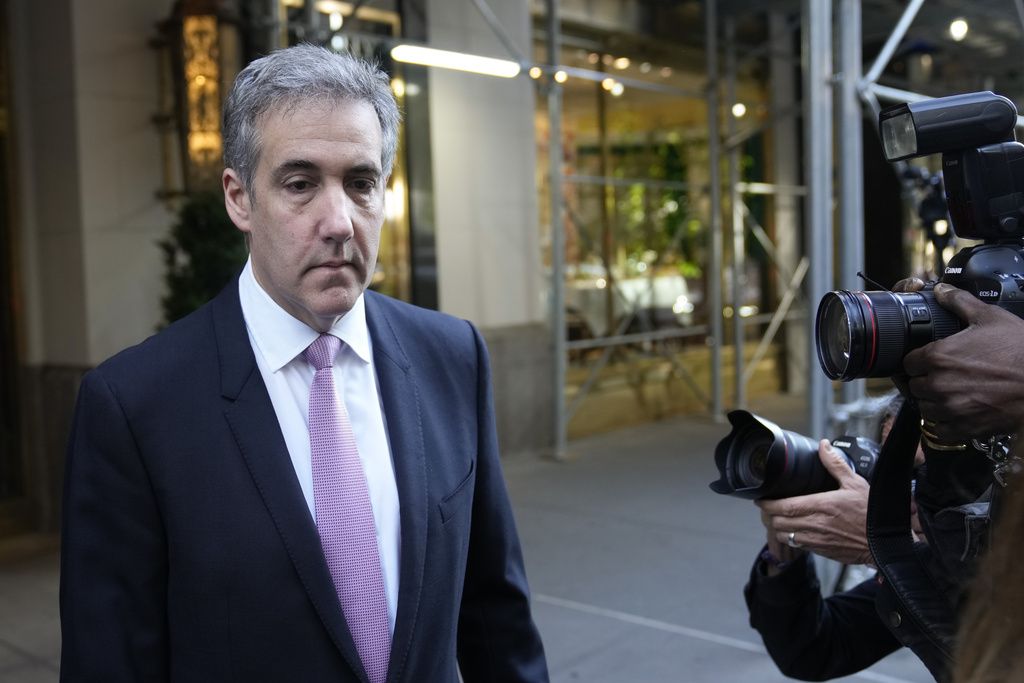
Cohen admits to stealing from Trump Organization
Trump’s defense attorney Todd Blanche grilled Cohen on how he lied about a reimbursement request in 2017 so that the Trump Organization would overpay him by tens of thousands of dollars.
Cohen testified he was reimbursed $50,000 for payments to Red Finch for technology services but that he only paid Red Finch $20,000, resulting in him effectively stealing money from the Trump Organization.
Blanche’s questions intensified and his voice became high-pitched as he drilled down on the admission.
“Did you ever have to plead guilty to larceny?” Blanche asked.
“No, sir,” Cohen said.
The reimbursement was included in the broader $420,000 payment plan that is at the heart of the case against Trump. The plan, which evidence shows was crafted by the Trump Organization’s ex-Chief Financial Officer Allen Weisselberg, included paying Cohen for the payment he made to Daniels, the Red Finch payment, an annual bonus, and taxes.
Cohen admitted to stealing the Red Finch money and also admitted that because the reimbursement was part of the broader payment plan, the tax aspect of the plan caused the Red Finch payment to Cohen to double. In other words, Cohen admitted to stealing $60,000 rather than $30,000.
When asked by the prosecution about this on redirect, Cohen said he did so because he was angry about getting a lower annual bonus.
“I was angry because of the reduction in bonus, and so I just felt like it was almost like self-help,” Cohen said.
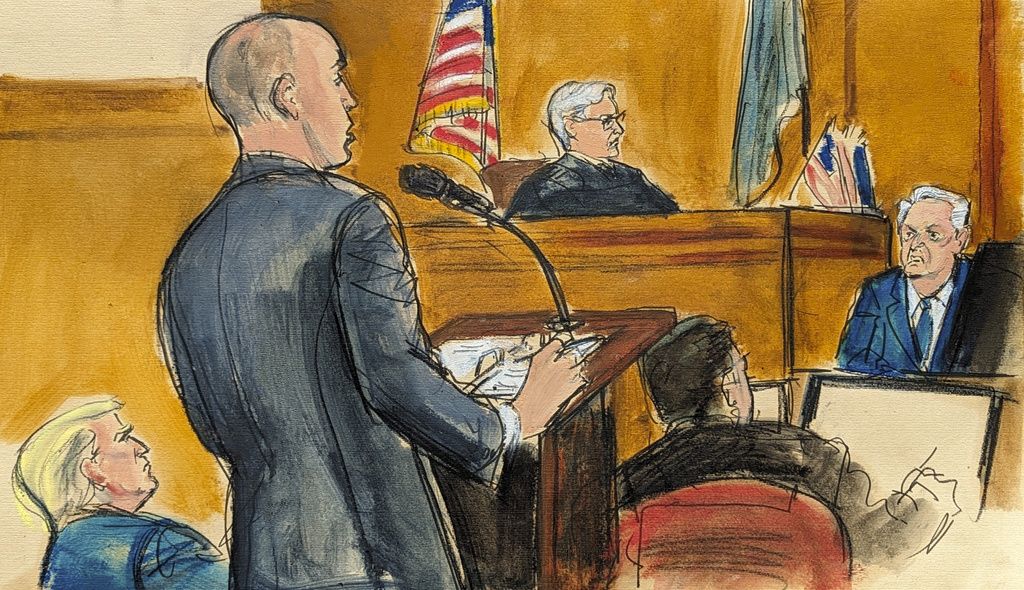
Key points from Robert Costello’s testimony
Robert Costello, who gave Cohen legal advice when Trump’s ex-fixer was the target of a federal prosecution in April 2018, was asked Monday by defense attorneys about a pivotal meeting Cohen and Costello had at the Regency Hotel that month.
While Costello was severely limited by the judge in what he could say, he emphasized that Cohen appeared to be in a crisis during the meeting and yet had no damning evidence against Trump that could have helped Cohen avoid prosecution.
Costello, a former prosecutor fresh off his revealing testimony to Congress last week, indicated Monday that his client said “numerous times” that Trump knew nothing about the hush money payments to Daniels.
“Michael Cohen said numerous times that President Trump knew nothing about those payments, that he did this on his own,” Costello said. “And he repeated that numerous times.”
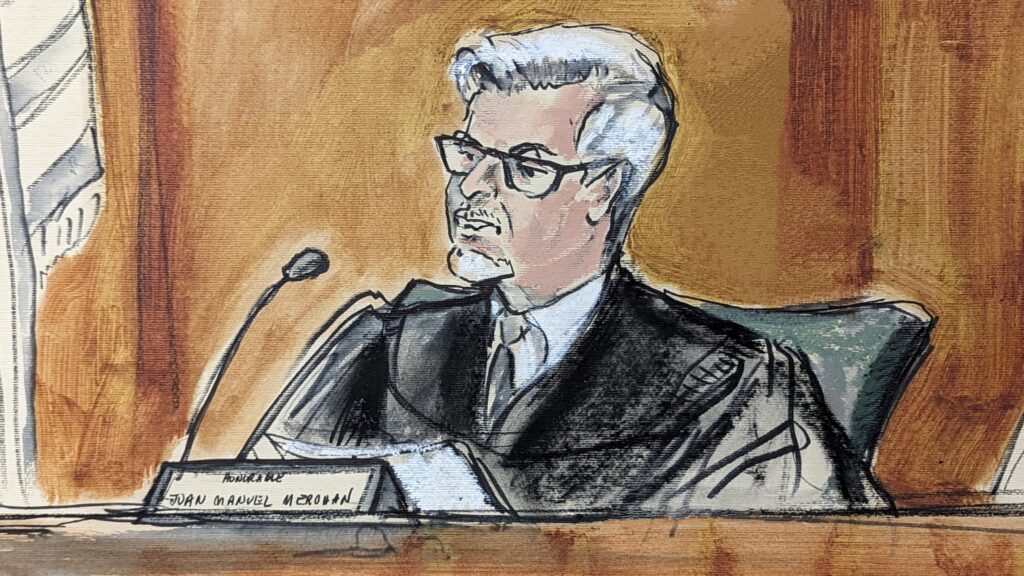
Judge reprimands Costello and tells reporters to leave courtroom
When he was seated at the witness stand, Costello audibly reacted in a negative way as Merchan sustained several objections from the prosecution. He audibly said, “Geez,” after one was sustained. Appearing exasperated, Costello also said he would strike one of his own responses from the record after Merchan repeatedly shut down his answers.
Merchan responded to the behavior by asking the jury to leave the courtroom briefly Monday afternoon so he could address Costello’s decorum.
After the judge’s stern warning, Costello gave him a long glare, and Merchan responded by asking, “Are you staring me down?” Then, in a stunning turn, the judge yelled, “Clear the courtroom!” The order prompted alarm from the press, and after several minutes, everyone was allowed back into the room.
According to a transcript from Monday’s proceedings, Merchan threatened Costello with contempt while the press was not in the courtroom.
“Your conduct is contemptuous right now. I’m putting you on notice that your conduct is contemptuous. If you try to stare me down one more time, I will remove you from the stand,” Merchan said.
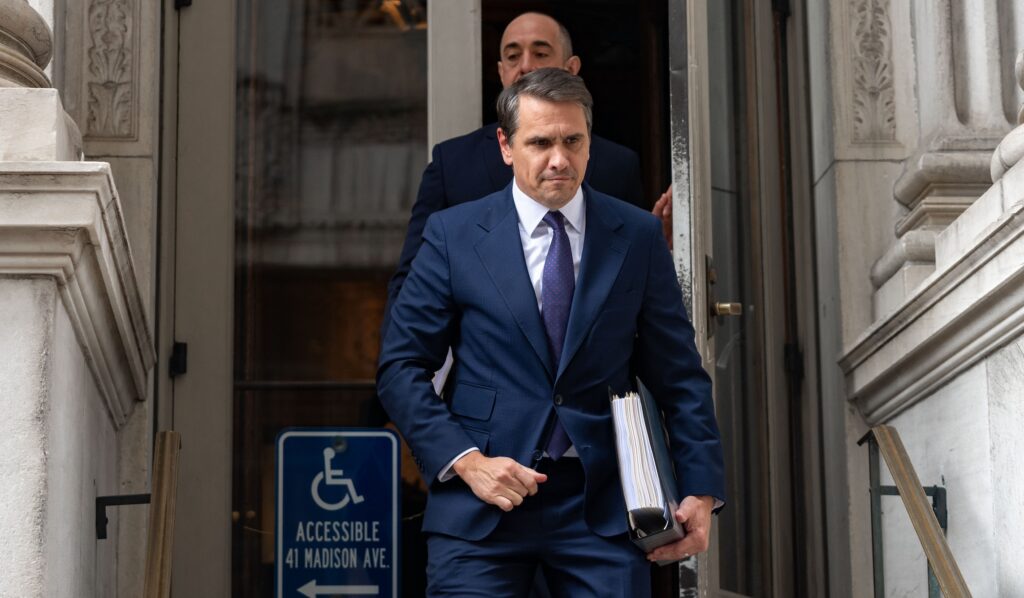
Trump attorney calls for judge to dismiss the charges
Later in the afternoon, Blanche asked Merchan to dismiss all the charges in the case.
“So you’re asking me to find Mr. Cohen not credible as a matter of law?” Merchan asked the lawyer, adding, “You want me to take it out of the jury’s hands and decide before it even gets to the jury?”
“Yes,” Blanche replied. The defense lawyer argued they didn’t just catch Cohen in one lie but rather “he came in here with a history of lying.”
The move, known as seeking a “directed verdict,” is not an uncommon ask from a defense attorney.
CLICK HERE TO READ MORE FROM THE WASHINGTON EXAMINER
Merchan said at the end of the day that he would reserve his decision on the defense’s call to dismiss the charges.
The defense attorneys said they planned to finish questioning Costello on Tuesday and likely had no further witnesses after him. They indicated they could rest their case by Tuesday morning, meaning there is a low chance Trump himself will take the stand.
